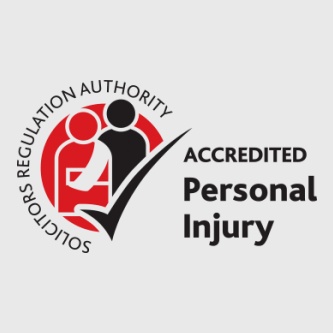Published: 3rd December 2020
Despite the fact that more cars, buses and bicycles flow onto our roads each year, the UK’s roads have remained amongst the safest in Europe. This can be supported by the latest data from the European Transport Safety Council, which shows UK deaths per million inhabitants in 2020 to be amongst the lowest in Europe, with lower fatalities seen by just Norway and Sweden.
With vastly improved vehicle safety features, tighter speed control regulations, as well as greater general public awareness, UK road accidents are on the decline.
In fact, government figures from 2019 report that ‘casualties of all severities’ were 5% lower than in 2018, this is the lowest level since 1979 when this statistical series with current definitions and detail began.
But unfortunately, UK roads are not without their perils.
Accidents happen every day, though in the majority of cases, drivers have the power to prevent them.
Here we discuss the top five most common causes of UK road accidents, and how they can be avoided:
5. Drink driving
Drink driving is one of the most highly publicised causes of road accidents.
There is a regular stream of expensive advertising campaigns to warn us of the dangers of drink driving, particularly over the festive period.
Drink driving fatalities have decreased by 40% in the ten years between 2008-2018, but statistics show that it’s still the cause of over 13% of annual road deaths.
Driving or attempting to drive while above the legal limit can mean a ban from driving for at least one year (3 years if convicted twice in 10 years), an unlimited fine , six months imprisonment and a criminal record. If a fatality is caused by drink driving, then you could face up to 14 years imprisonment.
Whilst there is a legal limit for alcohol intake when driving (35mg alcohol per 100ml of breath), its effects on the body differ from person to person.
Factors such as height, weight and gender can affect its impact, meaning that even small amounts of alcohol can be too much for some people.
The safest thing is simply, don’t risk it. Ever.
You have got too much to lose.
4. Losing control
Losing control of a car can be a frightening experience.
Most of the accidents on which we have been consulted are caused due to speed. Not to be confused with speeding (though this is sometimes a factor), it means making manoeuvres without slowing down to a safe speed, such as taking a bend in the road or changing lanes.The Royal Society for The Prevention of Accidents (RoSPA) reported that in the UK (2018), 186 people were killed in crashes involving someone exceeding the speed limit, with an additional 1,505 people being seriously injured.
Dangerous weather conditions such as ice, hail and snow are also a common cause. Or driving at speed during heavy rainfall may cause a car to ‘aquaplane’ – where the wheels lose traction on the road’s surface water, causing the car to skid.
The best way to recover from this is to stop braking and turn into the skid. This means that you turn the steering wheel in the direction that the car’s rear faces – but be careful not to overdo this, as the skid may then switch to the other direction.
However, the most effective way to prevent losing control of your vehicle is to not allow yourself to get into such a situation in the first place. It’s something that everybody has the power to avoid before it has even had a chance to happen.
By keeping your car and tyres in peak condition, driving slowly and carefully in difficult conditions, whilst also avoiding sudden acceleration, braking and turning, you will stand a better chance of keeping control of your vehicle.
3. Being careless, reckless or in a hurry
Sometimes when people drive, they’re in a hurry.
It’s an understandable situation and something that most people will be able to relate to.
But unfortunately, it can cause some people to drive much more dangerously. Some drive far more quickly than they should, others drive more aggressively. Tailgating is one such example, and is the cause of many an accident.
It’s a sad fact that to this day, many people still use their mobile phones whilst driving. Penalties including six points on your licence and a £200 fine are now in place to try and reduce the number of drivers using their mobile phones. Tighter laws are expected to be announced in 2021.
Meanwhile, young and inexperienced drivers are often labelled careless and reckless, but it’s far too easy to place blame on just a select group of road users, as drivers can form bad habits long after passing their driving test.
It pays to slow down and be more cautious and if everybody did so, accidents would become far less common.
2. Failing to judge another person’s path and/or speed
Examples include misjudging a gap when pulling out of a junction or when attempting to negotiate a busy roundabout. Another is to wrongly assume that another vehicle will make the manoeuvre that you expect them to make.
It is human nature for people to take risks, but it is also dangerous to make assumptions about what will happen next.
Anticipation is a great skill to employ when behind the wheel of a car, but it should be an informed and calculated reaction to the developing on-road circumstances.
On the other hand, simply making an assumption about what will happen next is careless and the potential cause of very dangerous situations – such are the fine margins when driving.
The manoeuvres that other drivers make are completely out of your control; what you would do in their situation may not necessarily be what they may do, so never simply assume.
For such occasions, The Highway Code provides simple advice:
That is to “wait until there is a safe gap between you and any oncoming vehicle”.
1. Failure to look properly
Over a third of all road accidents in the UK are caused by failing to look properly.
It is the most common cause of all UK road accidents, yet it should be the easiest to prevent.
However, there are many reasons why it can happen.
I am sure you will be familiar with the phrase ‘Tiredness kills’ if you have ever driven on a UK motorway. Tiredness can have a dramatic impact on a driver’s awareness and reactions. Crashes caused by driver fatigue are about 50% more likely to result in death or serious injury as they tend to be high speed impacts because a driver who has fallen asleep cannot brake or swerve to avoid or reduce the impact.
Alternatively, failing to look properly before performing a manoeuvre could be caused by other forms of distraction whilst driving; perhaps by a fellow passenger, a mobile device or the radio.
Some accidents are simply caused by driver complacency, familiarity with the route, or even laziness.
Driving requires the utmost concentration.
Looking properly is the most basic of requirements because it only takes a split-second to cause an accident – but mistakes do (and will continue to) happen.
The simplest solution is to be alert and vigilant.
If you’re feeling tired, then always take a break. If you become distracted, do not drive until your focus returns.
Overall, you must do everything in your power to stay safe.
If you have been injured in a road traffic accident, we at Serious Injury Law Ltd have over three decades’ experience in personal injury.
Talk to us in confidence about your situation, and we will let you know how we can help you.











